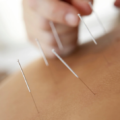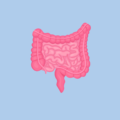Jaw Pain
Jaw pain, otherwise known TMJ (temporomandibular joint) syndrome, or TMD (temporomandibular disorder), has a few causes. Assuming it’s not a tooth or an infection issue, which your dentist will sort out, here are a few reasons why our jaws get sore.
Common causes include:
- Jaw Misalignment & Bite Issues – another job for your dentist
- Teeth Grinding & Clenching (Bruxism) – Often due to stress or anxiety. This is a tough one as it’s often done during your sleep, where you don’t have the awareness to calm things down.
- Trauma or Injury – Direct injury to the jaw, head, or neck. This could be a whiplash injury, or from a fall perhaps.
- Muscle Tension & Stress – Similar Bruxism, chronic stress can lead to muscle tension, clenching, and poor posture.
- Arthritis & Joint Disorders – Osteoarthritis or rheumatoid arthritis (RA), can lead to chronic inflammation and often degeneration in joints.
- Hormonal – Some studies suggest a link between oestrogen levels and TMJ pain (more common in women). So add that one to the menopausal list but leave lots room as the list seems to be exhaustive.
- There are a couple of conditions that also cause TMJ issues but really too rare to mention here.
What can be done:
Well, if we are talking about; bruxism, muscle tension and stress? There is quite a lot we can do. There are several modalities that can help with jaw pain. Any tactile therapy such as physio, massage and chiropractic can help but often the treatment can be painful and the area can be sensitive after treatment. Usually these treatments will struggle to address the underlying cause of tension and stressful clenching.
Acupuncture is especially good for TMJ pain. When applying the treatment to acupuncture does not necessarily have to be into the jaw or surrounding muscles. Points that have a neural relationship with the jaw area, might be on the hand, arm or leg. Using these points allow us to test the pain and the movement of the jaw during the treatment to make sure we are on point, yes a completely intended pun.
It’s really important to get the pain down and movement up during treatment, once we achieve that we can then apply some relaxing points for the body and mind to hopefully work on prevention.
Meditation, mindfulness & breath work are also really helpful for TMJ trouble. You might not notice improvements straight away but if you can put in a little practice it will help with happy hormones and create a little quiet amongst the noise. Which might just relax your jaw a little. Need some more info on breath work? Click here for another one of my blogs.
– Nick





